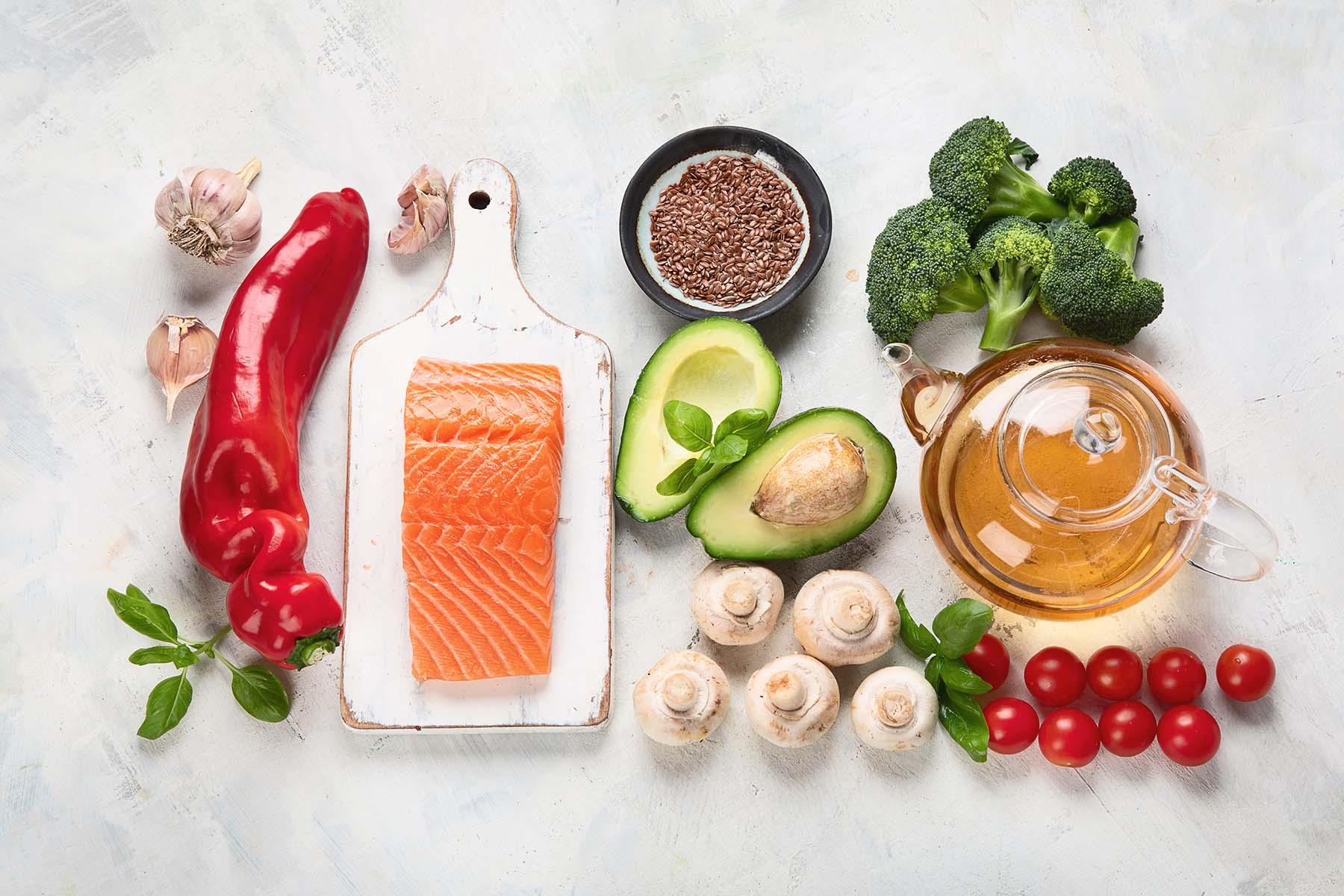Food for Thought: Pancreatic Cancer

Treating pancreatic cancer takes a team effort that involves the expertise of gastroenterologists, oncologists, surgeons, pain management specialists, and registered dietitians.
If you’ve been diagnosed or are undergoing treatment, your diet and nutrition will significantly affect how you feel and your recovery. A dietitian specializing in pre- and post-surgical care can help you tailor your diet to reduce abdominal pain, minimize symptoms, and help you maintain a healthy weight.
What’s the connection between pancreatic cancer and diet?
Your pancreas helps you digest your food and optimize your energy levels. This organ produces insulin, other hormones, and digestive enzymes to help break down dietary proteins, carbohydrates, and fats. Chronic pancreatitis, alcohol abuse, pancreatic cancer, or changes after surgery can damage the pancreas and lead to exocrine pancreatic insufficiency (EPI).
What is EPI?
EPI prevents your body from properly digesting food and absorbing nutrients (called malabsorption), which can lead to significant digestive symptoms and unintentional weight loss.
Many specialists prescribe pancreatic enzyme replacement therapy (PERT) to be taken with every meal, snack, and oral nutrition supplement. PERT rebuilds the body’s enzymes to aid digestion, improve your body’s ability to absorb nutrients, and encourage weight gain/maintenance.
Because of EPI and malabsorption, people diagnosed with pancreatic cancer may experience:
- Unexplained weight loss (can be severe)
- Vitamin and mineral deficiencies
- Diarrhea
- Foul-smelling gas/stools
- Light-colored, yellow, or clay-colored stools
- Abdominal bloating, pain, and cramping
- Feeling full too soon, decreased appetite
- Back pain
- Fatigue
- Nausea or vomiting
- Jaundice (yellowing of the skin or the white part of the eyes)
- Diabetes or uncontrolled blood sugars (because the pancreas produces insulin)
What can dietitians do for pancreatic cancer patients?
As part of a patient’s personalized, comprehensive care plan, a dietitian will help reduce their symptoms through dietary choices (with adequate PERT doses), overcome nutritional challenges, and help with nutrition optimization before and after surgery. Any restrictions or limitations depend on each person’s symptoms, treatment plans, and prognosis.
When surgery is part of the treatment, these dietary guidelines can help the patient maintain a healthy weight.
- Eat small frequent meals or snacks every two to three hours.
- Eat more low-fat, protein-rich foods (chicken, fish, eggs, Greek yogurt, beans, legumes, pulses, tofu, and reduced-fat cheese in moderation).
- Try high-calorie shakes and smoothies.
- Rely on protein supplements (shakes and powders) to help increase overall protein intake. Add unflavored protein powders to foods like soups, mashed potatoes, and oatmeal.
- Avoid protein bars because these may have added fibers and ingredients that can worsen abdominal pain or digestive distress.
- Spread out your fat intake throughout the day. Too much fat at once may worsen symptoms.
- Try a small portion of healthy fat with each meal or snack (these include avocado, nut butters, nuts, seeds, olives, extra virgin olive oil, and eggs).
- Drink liquids an hour before or after meals to avoid fullness. Choose calorie and nutrient-dense beverages.
- Some registered dietitians may recommend consuming immuno-nutrition products or shakes for three to five days before pancreatic cancer surgery.
- Physical activity can stimulate appetite.
After pancreatic cancer surgery, the dietitian may recommend dietary choices to reduce diarrhea, bloating, and gas and encourage weight maintenance/gain.
- Slowly return to eating solid foods.
- Focus on light meals and soft foods that are more easily digested. In the early post-op period, semi-solid or pureed/liquid meals and nutritional supplements/shakes may be better tolerated.
- Follow the pre-surgery nutrition recommendations aimed at increasing overall protein and calories in small frequent meals and snacks.
- Increase intake of soluble fiber foods (such as applesauce, pectin, bananas, oatmeal, potatoes, rice, and psyllium husk fiber powder).
- Follow the pre-surgery nutrition recommendations regarding dietary fat intake.
- Avoid foods that are spicy, fried, high in fat, creamy, prepared with lots of cheese, high in insoluble fiber, and loaded with added sugars.
- Avoid beverages with caffeine, carbonation, added sugars, full-fat dairy, and alcohol.
If you or a loved one have been diagnosed with pancreatic cancer, it’s essential to be proactive about diet and nutrition to ensure the best possible outcomes.
For patients with cancer, nutrition consultations with Sylvester’s registered dietitians are complementary.
Ask your provider for a referral to our nutrition clinic and call (305) 243-4922 to make an appointment. To make an appointment with the experts at Sylvester Comprehensive Cancer Center, call 1-844-324-HOPE (4673).
Written by Dana Kantrowitz, a contributing writer for UMiami Health News.
Medically reviewed by Federika Garcia, M.S., RDN, LDN, CNSC, senior clinical dietitian with Sylvester Comprehensive Cancer Center, part of the University of Miami Health System, and Anna Gonzalez, RDN, LDN, oncology dietitian with Sylvester. Reviewed and approved September 2023.
Tags: Anna Gonzalez, cancer and diet, cancer treatment, dietary choices, Federika Garcia, Nutrition, pancreatic cancer, Sylvester Comprehensive Cancer Center
